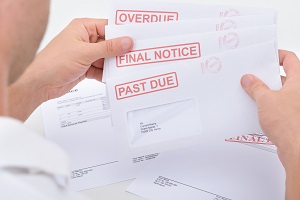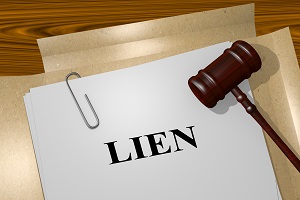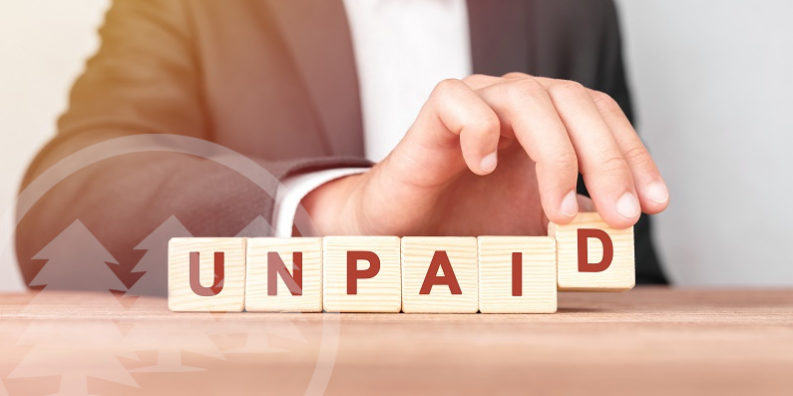When you join a planned development run by a homeowners association, you agree to follow the stipulated terms found in its governing documents. One of these stipulations is to pay a regular HOA fee or assessment to cover everything from maintenance and repairs to replacements of communal amenities. While most homeowners religiously keep up on their payments, others question the very purpose of it. So, what happens if you don’t pay HOA fees?
What Happens If You Don’t Pay HOA Fees? Let’s Find Out!
Every start of the year, the HOA board comes up with a budget, which they then use to calculate how much to charge each homeowner in monthly or annual fees. As you can tell, these HOA fees play an important role in the overall well-being of the community. Without such fees, an association will easily run out of money to pay for necessary maintenance and repairs.
As one thing leads to another, the community’s appeal will suffer and cause property values to drop, thus, paying HOA fees on time directly affects the value of your property. You’re not just paying for the sake of paying — in the end, it’s for your own good.
But, what happens if you don’t pay homeowners association fees? Not all associations follow the same procedure when it comes to HOA collections and members defaulting on payments. Certain state laws may also affect the way an HOA deals with a delinquent homeowner, though most HOAs do share the same general steps.
In the beginning, you may only receive written warnings and not feel threatened at all. However, the consequences of delinquent HOA dues can have a snowball effect, with each ramification more serious than the one that came before it.
1. Notice of Missed Payment
 What happens if you don’t pay HOA fees? The first thing you may receive from your HOA is a notice of missed payment or a notice demanding payment. The purpose of this letter is to inform you, the reader, that you’re late on your HOA fees.
What happens if you don’t pay HOA fees? The first thing you may receive from your HOA is a notice of missed payment or a notice demanding payment. The purpose of this letter is to inform you, the reader, that you’re late on your HOA fees.
The notice typically includes details of your outstanding debt, such as the total amount due and how long the payment has been due. It may also outline what you can expect the board to do should you fail to settle your bill, such as refer your account to an HOA collection agency.
2. Late Fee
Can a homeowners association fine you for late payments? The short answer is yes. In addition to the notice of missed payment, your HOA may opt to include a late fee on top of the regular HOA fee. This late fee, depending on how long it has been left unpaid, may also accumulate interest over time. That amount can really add up.
3. Suspension of Rights
 Some homeowners are scared into paying their dues because of the late fee (plus interest) alone, but others are not so easily moved.
Some homeowners are scared into paying their dues because of the late fee (plus interest) alone, but others are not so easily moved.
The next step the board may take against you should you default on payments is to suspend your rights as a member of the association. That usually means you won’t be able to use community amenities, such as the clubhouse, the pool, and the gym.
It doesn’t just stop there. The HOA board can even take it one step further and revoke your right to vote on issues concerning the community until you’re fully paid. With no rights and privileges within the association, you’ll begin to feel like a total outsider. Even getting your trash collected will be an issue.
4. Charged to Renters
This point only applies to homeowners who rent out the property they own within the association. If you belong to that group, then your HOA can take out your delinquent HOA dues from your rental income. In some cases, your HOA can even go after your tenant and demand they cover the unpaid fees, provided, of course, that the renter signed a contract with the HOA when they first moved in agreeing to such a stipulation.
5. File a Lawsuit
What happens if you don’t pay HOA fines? Surely, your HOA can’t take legal action against you, right? Wrong. You may think you’re safe from a lawsuit, but legal repercussions are a reality for some delinquent homeowners. A number of states allow HOAs to sue delinquent residents and seek compensation for the amount due via their bank accounts or wages.
6. Place a Lien
 Most associations have the right to place a lien on your home should you default on your assessments.
Most associations have the right to place a lien on your home should you default on your assessments.
Should your HOA exercise this authority, the lien will attach automatically to your property as of the due date of the HOA fees. Your association may choose to record the lien in the county records, but this is usually not mandatory.
Some states require it, though, and even necessitate a certain format for the claim of lien. For instance, according to the North Carolina Planned Community Act GS § 47F-3-116, a claim of lien must contain the name and address of the association as well as the delinquent homeowner’s name, lot description, and lien amount. A specific statement must also appear on its first page.
While they don’t sound as threatening, HOA liens are quite the opposite. After your HOA places a lien on your property, life may continue as normal until one of these three things takes place:
- You try to take out another mortgage
- You attempt to sell your home
- The HOA forecloses on your home
7. Foreclosure
After a lien is placed on your home, your HOA can choose to foreclose on that lien. It doesn’t even matter if there is a mortgage on the home — as long as state laws and the CC&Rs allow it, you may face foreclosure. There are two ways an HOA can foreclose on a lien:
- Judicial foreclosure. To do this, the HOA will file a lawsuit against the delinquent resident and then secure the court’s permission to sell the home.
- Non-judicial foreclosure. To do this, the HOA simply needs to follow certain procedures set forth by the state laws and the association’s CC&Rs.
Alternative Payment Options
 You can’t really get out of paying HOA dues. You can’t even negotiate for a lower price as you would in a market. So, what happens if you don’t pay your HOA? Whether you are late on regular or special assessments, what you can do is to talk to the HOA board.
You can’t really get out of paying HOA dues. You can’t even negotiate for a lower price as you would in a market. So, what happens if you don’t pay your HOA? Whether you are late on regular or special assessments, what you can do is to talk to the HOA board.
If you are struggling financially, you can ask the board to set up a payment plan that works for both parties. In fact, in some states, HOAs are obligated to offer delinquent homeowners a payment plan to settle their debt.
Why Do I Have to Pay HOA Fees?
Homeowners associations rely on HOA fees to fund various expenses and projects. These fees are determined by the HOA board. First, the board prepares an annual budget with anticipated expenses. From this budget, the board decides how much to charge in HOA fees so that it can meet all the HOA’s financial needs.
Regular fees cover a number of service and expenses, which can differ from one HOA to another. In general, though, these typically include the following:
- Maintenance and repairs
- Landscaping
- Utilities for common buildings, areas, and amenities
- Vendor contracts
- Insurance
- Management fees
- Security systems
- Office supplies
Can HOA Fees Be Waived?
It is uncommon for an HOA to waive fees or allow homeowners to skip paying them. After all, all homeowners have a responsibility to pay these fees, and waiving them for a select few would be unfair to the others. However, there may be some exceptions.
An example of an exception would be if an HOA allows a homeowner temporary relief if they are struggling financially. In this case, the homeowner may need to prove their hardship with documentation. Of course, this temporary relief won’t last long, as it would be unfair to the rest of the community. Associations that allow temporary relief in the first place usually only reserve it once per homeowner.
Do Delinquent HOA Dues Affect the Community?
Homeowners are obligated to pay monthly or annual HOA fees. Late payments from homeowners can harm the association’s budget, affecting all members. When the HOA experiences a high number of delinquencies, it can lead to a negative domino effect.
First, the HOA won’t be able to pay for all of its required expenses. It might make late payments to vendors, compromising the HOA’s relationship with them. On others, the HOA might be unable to pay completely.
When the HOA can’t pay for services, the community suffers. Maintenance, repairs, landscaping, insurance — all of that goes out the window. Homeowners will then have to face dilapidated common spaces, diminished curb appeal, and lower property values.
Of course, the HOA board won’t take this sitting down. It will need to act accordingly to make up for the delinquencies. This usually means charging special assessments or increasing dues to meet the required budget, resulting IN a heavier financial burden for homeowners.
Can HOA Dues Affect Credit Scores?
In a word, yes. When a homeowner pays late or doesn’t pay their dues to the HOA, it can potentially affect their credit score. This usually happens if the HOA makes the extra effort to report the delinquency to credit reporting bureaus. However, most associations don’t do this.
If an HOA refers the debt to a collection agency, though, it will likely reflect in the owner’s credit score. Collection agencies are more aggressive in their efforts, making sure to alert credit reporting bureaus of the debt.
Finally, if the homeowner faces liens and/or foreclosure, they can expect their credit score to drop. Liens and foreclosures are a matter of public record. As such, credit reporting bureaus can easily access this information.
How to Ensure You Don’t Miss Paying HOA Fees
Homeowners have an obligation to pay regular fees to the HOA. To make sure you don’t miss a payment and face unfortunate consequences, follow these tips:
- Schedule your payments to go through automatically using your credit card or bank details. This way, you won’t need to manually pay your fees every month.
- If you’re uncomfortable with automatic payments, make sure to set reminders on your calendar. In doing so, you can remember to pay your dues on time even if you have to do it manually.
- On months when you have a little more wiggle room, opt to make payments in advance. You can pay for two or even three months’ worth of fees. Just make sure you inform your HOA board of this.
- Keep records of your payments. Invoices and receipts should be properly documented. This way, you can refer to your records if you forgot whether or not you’ve made a payment this month already. This also serves as evidence in case the HOA mixes up deadlines or receipts.
- Fees don’t stay the same forever. They can go up and, rarely, go down. As such, make sure to keep up-to-date on any changes in fee amounts. In doing so, you can prevent making unintentional underpayments or overpayments.
- Since your HOA communicates with you through your contact information they have on file, make sure to update them whenever you change your phone number or email address. That way, if there are any announcements or important changes, they can inform you immediately.
Frequently Asked Questions
Do I have to pay HOA fees?
Yes, homeowners in an HOA community must pay HOA fees. Homeowners agree to pay this fee upon purchasing a home within the community.
Can you refuse to pay HOA fees?
While you can technically refuse to pay HOA fees, you should expect dire consequences ranging from late charges and lawsuits to liens and foreclosure. As such, you should do your best to pay your HOA fees on time and in full.
Are HOA fees mandatory? Are you required to pay HOA fees?
Most of the time, the answer is yes. A majority of homeowners associations provide mandatory memberships. This means that once you buy a home within the HOA, you automatically become a member. Becoming a member means agreeing to abide by the association’s rules, one of which is paying HOA fees.
How can I pay HOA fees?
Homeowners associations usually offer a variety of payment methods, including checks, online payments, and ACH. It’s best to ask your HOA board or community manager about the payment methods you can use.
How long do you have to pay HOA fees?
You will usually receive a statement of your account and a notice of dues payment a few weeks before the deadline. This can vary from one association to another, though it’s generally 30 to 45 days.
Can an HOA foreclose on your home in North Carolina?
Yes, an HOA does have the power to initiate foreclosure proceedings in North Carolina. There are certain requirements and conditions that must be met, though.
Can an HOA foreclose on your home in South Carolina?
Yes, an HOA does have the power to initiate foreclosure proceedings in South Carolina. There are certain requirements and conditions that must be met, though.
Can an HOA foreclose on your home in Tennessee?
Yes, an HOA does have the power to initiate foreclosure proceedings in Tennessee. There are certain requirements and conditions that must be met, though.
Can an HOA foreclose on your home in Virginia?
Yes, an HOA does have the power to initiate foreclosure proceedings in Virginia. There are certain requirements and conditions that must be met, though.
A Homeowner’s Responsibility
Now you know the answer to the age-old question: What happens if you don’t pay HOA fees? As you can see, a number of consequences are in store for anyone who defaults on their assessments. From something as simple and seemingly insignificant as a notice to more serious actions such as foreclosure, missing out on payments is no joke. It’s more than just a matter of money. As a member of an HOA, you took on the responsibility of paying HOA fees the moment you signed the deed of sale.
If your HOA is having trouble managing or collecting HOA fees, consider asking an HOA management company like us for assistance.
RELATED ARTICLES:
- What Is An HOA Fee? What Does It Cover?
- The Pros And Cons Of Low HOA Fees
- Are HOA Fees Tax-Deductible?






